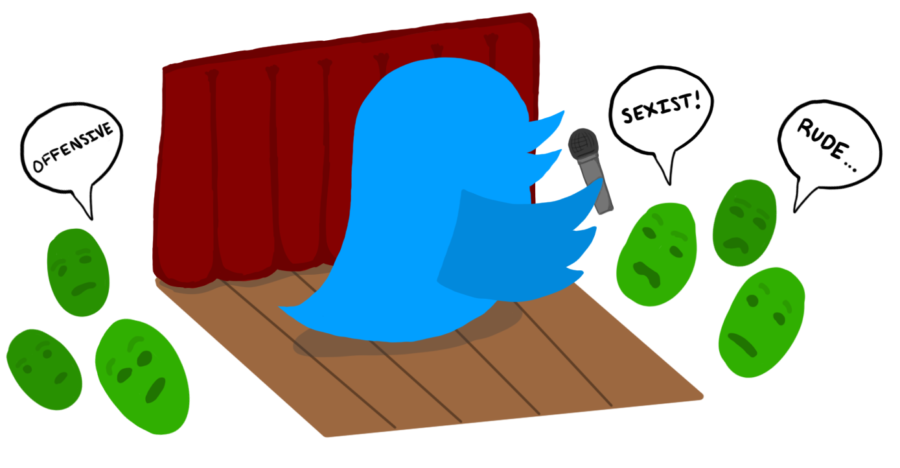On the sidelines at the football game between Pitt and Oklahoma State this weekend, a female Pitt fan likely had little idea she would be one of the highlights from the game on social media. But that’s exactly what happened.
A clip of Gianna Rockoff, a sophomore psychology major at Pitt, taking part in a race as a “hopper” on a bouncy ball aired on ESPN’s coverage of the game, with the network’s announcer remarking, “I should probably end by saying that and not add anything else that I am perhaps thinking.”
The bizarre commentary in the clip was later picked up on Twitter by Dave Portnoy, founder of sports blogging website Barstool Sports. With an added comment from Portnoy suggesting that the ESPN commentator was sexually fantasizing about Rockoff, the tweet collected more than 150 retweets and 1,300 likes — and dozens of disgusting replies — by Sunday night. The tweet’s popularity prompted Rockoff to respond, tweeting “Well I was literally sexualized on ESPN today so that’s cool.”
An ESPN spokesperson told The Pitt News that the commentator, Zubin Mehenti, did not intend to make a sexual remark and was simply commenting on the absurdity of the activity in general. Later, it was discovered that Mehenti wasn’t aware what video his commentary would accompany. ESPN said Mehenti wanted to talk with Rockoff to make sure she understood what he meant, but that didn’t stop the tasteless “jokes” from Twitter.
And Portnoy’s joke isn’t the only notable instance of humor about a questionable subject matter here at Pitt in the past few weeks — including tactless trash talk involving the child sex abuse scandal at Penn State.
While all topics should, ideally, be open for comedic approaches, those making offensive jokes should remember the human consequences of their humor. By and large, what we’ve seen in the past few weeks hasn’t seemed to stay conscious of that.
Twitter is a monolithic social force in 2017, and it’s obvious that offensive content on the site is always going to exist. But given how close to home these particular jokes hit, the point of view that jokes like Portnoy’s have no real world impact is clearly wrong.
There’s no way around it — someone outside of the Pitt community exposed a student here to the overtly sexual attention of hundreds of strangers on the internet without her consent. And though it might not always be as visible to us as it is this time, thoughtlessly provocative humor is often abusive to someone else — or anyone who’s endured sexual assault.
The rash of signs around Oakland last weekend referencing Joe Paterno’s role in Penn State’s child sex scandal provide another illustration of edgy “humor” that ends up becoming hurtful. It would be one thing if the makers of “Joe Pa Knew” signs were doing so in an attempt to draw attention to the plight of children who are victims of sexual abuse. It’s entirely different to use those victims as cheap pawns in an attempt to make a sports rival look bad.
Talking up signs that do this as “savage,” as an article from The Tab did, is not only in poor taste — it’s irresponsible and abusive.
All of this isn’t to say that there isn’t or shouldn’t be a place for controversial comedy. Divisive comedian Joan Rivers described the value of provocative humor as a means for people to be able to acknowledge and look at some of the most taboo issues in our society.
Comedy can be a powerful tool to shine light on issues that people aren’t willing to look at otherwise. But the examples of pointless, “edgy” humor we’ve seen in the past few weeks redirect jokes to target the victims of abuse, not perpetrators. And that’s no laughing matter.


